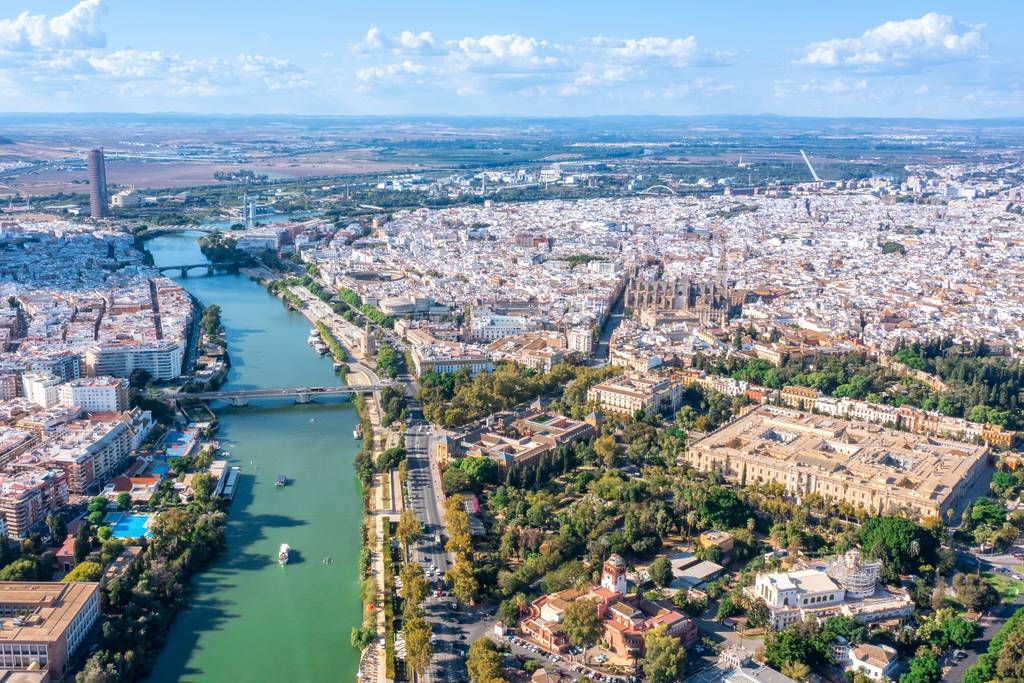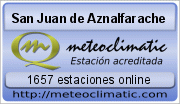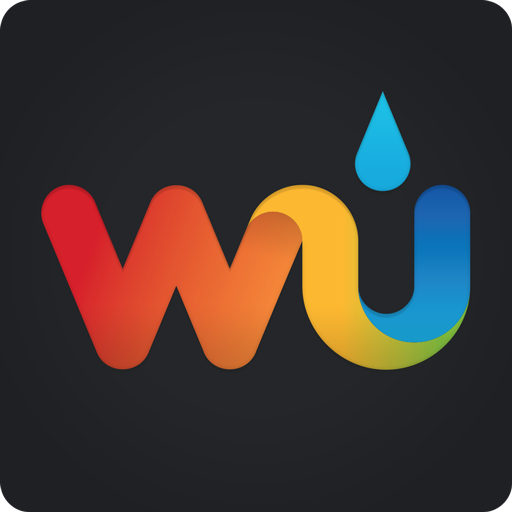Ciudad y Estación Meteorológica
Seville: A Jewel of Andalusia

About Seville
Seville is the capital of the autonomous community of Andalusia and of the province of the same name. With approximately 700,000 inhabitants in its urban area, it is the fourth most populous city in Spain and the main urban center in southern Spain.
Located on the banks of the Guadalquivir River, Seville boasts a rich historical and monumental heritage, the result of the different cultures that have passed through it throughout the centuries.
Climate
Seville enjoys a Mediterranean climate with continental influences, characterized by:
- Very hot summers, with temperatures that can exceed 104°F (40°C)
- Mild winters, with minimums rarely below 41°F (5°C)
- Moderate rainfall concentrated in autumn and spring
- More than 3,000 hours of sunshine per year
Did you know? The highest temperature officially recorded in Seville is: 47°C in August 2023.
Emblematic Monuments
The city features an impressive architectural and cultural heritage:
- Seville Cathedral: The largest Gothic cathedral in the world and declared a World Heritage Site. It includes the famous Giralda, a former minaret of the mosque upon which it was built.
- Royal Alcázar: The oldest royal palace still in use in Europe, with impressive Mudejar-style courtyards and gardens.
- Plaza de España: A masterpiece of early 20th-century regionalism, built for the 1929 Ibero-American Exposition.
- Torre del Oro (Gold Tower): A dodecagonal defensive tower from the 13th century next to the Guadalquivir River.
- Santa Cruz Quarter: The former Jewish quarter with narrow streets and charming squares.
Culture and Traditions
Seville is world-renowned for its festivals and traditions:
- Holy Week (Semana Santa): One of the most important and spectacular celebrations in Spain, with daily processions throughout the week.
- April Fair (Feria de Abril): A spring festival where Sevillians gather in marquees to dance sevillanas, eat and drink.
- Flamenco: The quintessential Andalusian art, with numerous venues in the city where you can enjoy authentic performances.
- Gastronomy: Famous for its tapas, gazpacho, salmorejo, fried fish, and game dishes.
Economy
The main economic activities in Seville are:
- Tourism: The main economic driver of the city
- Aeronautical industry: With important Airbus factories
- Service sector: Public administration, commerce, and hospitality
- Agriculture: Important in the province (olive oil, olives, rice)
Getting Around
Seville offers various transportation options:
- Metro: One line connecting the center with western and southern areas
- Tram: In the historic center
- City buses: Extensive network throughout the city
- Sevici: Public bicycle rental system
- Boats: Tourist cruises on the Guadalquivir River
Tip: The best way to enjoy Seville's historic center is on foot or by bicycle, as many streets are pedestrianized.
Annual Events
Calendar of main events in Seville:
- February/March: Seville Marathon
- March/April: Holy Week (Semana Santa)
- April/May: April Fair (Feria de Abril)
- May: European Film Festival
- June: Corpus Christi
- September: Flamenco Biennial (even-numbered years)
- December: Christmas Markets
Visitor Information
When planning your visit to Seville, keep in mind:
- Best time to visit: Spring (March to May) and Fall (September to November) offer pleasant temperatures.
- Summer precautions: If visiting in summer, plan your activities for early morning or evening to avoid the intense midday heat.
- Tourist Card: Consider getting the "Sevilla Card" for discounts on attractions and public transport.
- Siesta: Many small shops close between 2:00 PM and 5:00 PM for the traditional siesta.
Cultural note: Seville operates on a later schedule than many other European cities. Dinner typically starts at 9:00 PM or later, and nightlife continues well into the early morning hours.








